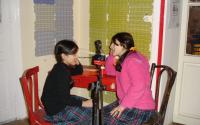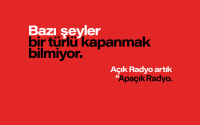4 November 2006The Independent
Professor Malcolm Willcock, to be precise, the gentlest, finest of academics who taught the ghastly Fisk Latin and Roman history when I turned up in the second year of Lancaster University's life in 1965. He made the Roman empire live and I think of him this morning - in the year of his death - as I walk the streets of ancient Rome and ponder the lessons of a later, even more dangerous empire.
Professor Willcock, I should add, was primarily a Greek scholar - he introduced me to Achilles walking by "the wine-dark sea" - and showed, according to one of his obituarists, "how Homer's characters inventively tweaked standard myths into serving as persuasive paradigms of the way heroes should behave".
Now who does that remind us of, I wonder? Indeed, what does the Roman Empire remind me of? I recall, back in 1997, taking bits of a US-made missile to Washington with the intention of placing the metal fragments in front of its manufacturers. I noted in my diary that the city "that late spring day was beautiful - the capital and the great government buildings looked like ancient Rome ..." and it is true that Washington's builders wanted their city to look like Malcolm Willcock's most famous capital.
Several US soldiers serving in Iraq - including a young man who was killed there last year - compared their own lives to those of Roman centurions. And it's not difficult, watching the Americans in their combat kit - the Germanised helmets, the back-breaking Kevlar body armour, the soft brown boots - to see the centurions in their leather breastplates and plumed helmets.
We can go to Iraq, their uniforms tell us; we can march across the lands of Sumeria where civilisation supposedly began; we can bestride Baghdad; we are (was this not Antony, already a mere triumvir) one of the "triple pillars of the world". For the Roman footfall, feel the vibration of an Abrams M1A1 tank.
But is that how empires exist? I used to believe that they contained their own built-in fear system, that they struck out against those who would have to understand Carthago delenda est. Carthage (for which read al-Qa'ida) must be destroyed but I'm not so sure. I think empires - Roman, British, American - expand because it is in their nature to project, constantly and fatally, military force. We can go to Baghdad, so we will go to Baghdad.
Professor Willcock, I remember, drew my attention to Crassus, that great Roman billionaire who made his sestertii from Roman slum rents and whose personality was so persuasively captured by Laurence Olivier in the film Spartacus. Crassus took his legions into what we would today call the Syrian-Iraqi desert where they were cut to pieces by the horse-born Parthians (for whom, read our modern-day Syrian-Iraqi terrorists). Crassus himself was invited to surrender talks in a tent where he was beheaded, his cranium filled with gold and sent back, Iraqi-style, to Rome as a tribute to his wealth.
When Scullard wrote his monumental From the Gracchi to Nero, he clearly - he was writing in the 1930s - felt that Caesar Augustus was an earlier version of Mussolini. Many movie versions of Roman history - Gladiator would be Hollywood's most recent effort - depict imperial power as essentially fascistic, although that is a bit unfair on Rome. The Republic - the Rome of the triumvirs - was an attempt to divide power and it is not Cicero's fault that Pompey, Caesar Augustus and Antony - who retrieved Crassus's standards from the Parthian desert - failed to save democracy.
What Rome did project was the idea of "belonging". Every conquered people became Roman citizens. Think, for a moment, what would have happened in Baghdad, if every Iraqi had been offered a US passport in 2003 - no insurgency, no war, no US casualties, only love and a desire on the part of every human being in south-west Asia to be invaded by George W Bush!
I once put this to a CIA official in Amara - yes, the same Amara which fell outside British rule last month and which Tony Blair will inherit as his lordship after his departure - and he scoffed at me. "We're not here for their benefit," he told me. Oh, but we were, weren't we?
Professor Willcock had a remarkable deputy commander in the Classics department at Lancaster University, a lecturer called David Shotter, whom I telephoned yesterday. Shotter used to compare the surging of the Roman legions to the German Wehrmacht in Second World War Russia, a parallel he now prefers to mute. He talks today of "a Romanised place in time", the creation "of a people with manic energy" and - I caught my breath when he said this down the phone to me as I stood scarcely 100 metres from the Roman forum - "how conquest can be ferocious when it needs to be". Virgil understood the need to profit from the benefits of peace. The Roman army, had its commanders viewed Iraq today, Shotter added slowly, "would have found the place a pretty unacceptable situation".
The Romans, of course, never retreated. They did not "cut and run" and, when they were once visited by an al-Qa'ida-like plague in Bithynia (in modern-day Turkey) in which every Roman man, woman and child was liquidated, they crucified their enemies to extinction. Human rights knew no dimensions in ancient Rome. The torture chamber was part of Roman civilisation. The cross was the symbol of power.
So what brought it down? Corruption, of course. And well, in the end, the Goths, Ostrogoths and Visigoths arrived in Rome. Not far from where I'm writing this report, you can still find the green, burned coins - the sestertii - engraved in the stones of the Roman market when they were tipped in fire at that moment when the "other" - the "alien" army, those who did not accept Roman "values" - arrived in the forum so quickly the merchants did not have time to shut up shop.
This morning, I shall go back and look at those burned coins again. But I must ask myself whether the "terrorists" - the Goths, Ostrogoths and Visigoths - will be stopped in Iraq. Or whether, perhaps, they already live in Washington, tearing apart their empire from within. I suspect that Malcolm Willcock, the noblest Roman of them all, might agree.






